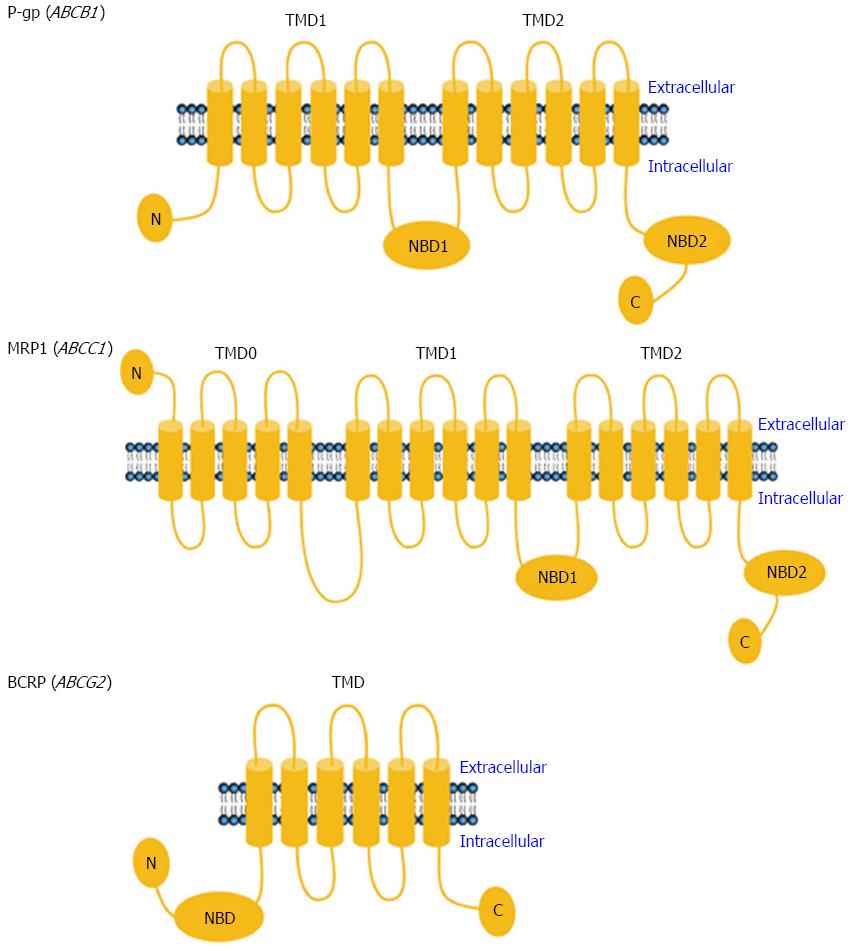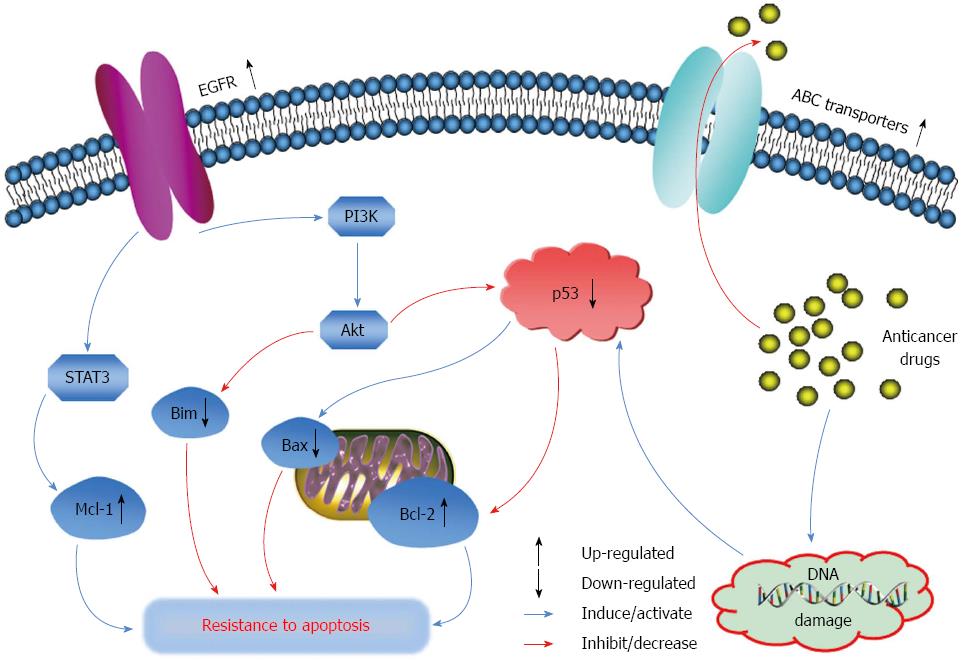Copyright
©The Author(s) 2016.
World J Gastroenterol. Aug 14, 2016; 22(30): 6876-6889
Published online Aug 14, 2016. doi: 10.3748/wjg.v22.i30.6876
Published online Aug 14, 2016. doi: 10.3748/wjg.v22.i30.6876
Figure 1 Schematic model of ATP-binding cassette transporters P-glycoprotein, multidrug resistance-associated protein 1 and breast cancer resistance protein.
The functional unit of P-gp consists of two NBDs and two TMDs containing 12 (2 × 6) membrane-spanning alpha helices. MRP1 also has a core structure containing two NBDs and two TMDs. Besides, it still has a third TMD (TMD0) with five predicted transmembrane segments and an extra N-terminus. BCRP is a "half transporter", consisting of only one NBD and one TMD. BCRP: Breast cancer resistance protein; MRP1: Multidrug resistance-associated protein 1; NBD: Nucleotide-binding domain; P-gp: P-glycoprotein; TMD: Transmembrane domain.
Figure 2 Over-expression of ATP-binding cassette transporters and evasion of apoptosis confer drug resistance in cancer.
Over-expression of ABC transporters on the plasma membrane, a transport-based cellular mechanism of drug resistance, can mediate the efflux of their substrate anticancer drugs out of cancer cells, and decrease their intracellular accumulation and therapeutic efficacies. On the other hand, evasion of apoptosis, a non-transport-based cellular mechanism of drug resistance, also leads to the resistance of cancer cells to therapeutic agents, in particular apoptosis inducers. Generally, DNA damage caused by anticancer drugs activates p53, which triggers apoptosis through targeting Bax. p53 also suppresses anti-apoptotic protein Bcl-2 and promotes apoptosis. However, anti-apoptotic proteins, such as Bcl-2 and Mcl-1, are over-expressed in various cancers, whereas the pro-apoptotic proteins including p53, Bax and Bim are mutated or suppressed. The alteration of these proteins decreases the sensitivity of cancer cells to DNA-damaging agents and leads to their resistance to apoptosis. Besides, protein tyrosine kinase EGFR is also over-expressed in tumors, through its regulation of anti-apoptotic signaling pathways, including PI3K/Akt and STATs. Over-expression of EGFR also contributes to the resistance of cancer cells to apoptosis. ABC: ATP-binding cassette; EGFR: Epidermal growth factor receptor; STAT: Signal transducer and activator of transcription.
- Citation: Hu T, Li Z, Gao CY, Cho CH. Mechanisms of drug resistance in colon cancer and its therapeutic strategies. World J Gastroenterol 2016; 22(30): 6876-6889
- URL: https://www.wjgnet.com/1007-9327/full/v22/i30/6876.htm
- DOI: https://dx.doi.org/10.3748/wjg.v22.i30.6876










